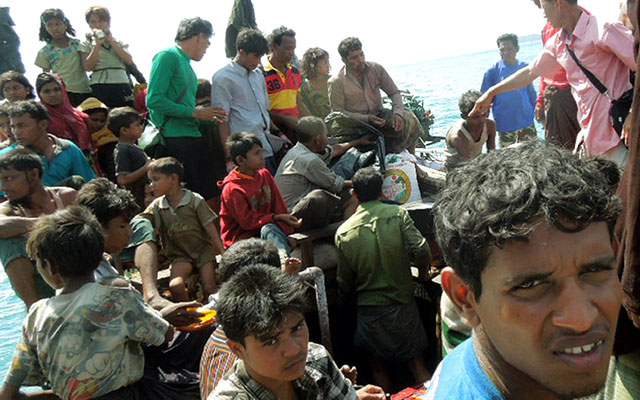Burma: Neighbors Call Out Regime on Rohingya Ethnic Cleansing
Olivia Enos /
Burma’s neighbors are finally speaking out about the ethnic cleansing occurring at their doorsteps. Both Indonesia and Malaysia have made public statements asking Burma to revisit its policy toward the Muslim minority Rohingya as violence continues to escalate in the nation.
Earlier this week, Indonesian Foreign Minister Marty Natalegawa called on Burma to grant legal status to the hundreds of thousands of Rohingya living within its border. Natalegawa noted that the Rohingya issue “cannot be treated in isolation so we must impress upon the Myanmar government as we have been, that to be able to transform democratically there must be at the same time, not sequentially, at the same time they must also address the issue of communal tensions and horizontal conflicts.”
Earlier this year, Indonesian President Susilo Yudhoyono urged Burma’s President Thein Sein to move toward a more formalized peace and reconciliation process with the Rohingya. Yudhoyono even offered assistance and was encouraging Indonesian companies to invest in conflict-ridden areas to encourage growth and peace in the region.
At a recent Association of Southeast Asian Nations meeting, Malaysian Foreign Minister Anifah Aman urged Burma to reconsider how it is handling the persecution of Muslims in Burma. Aman urged justice for the perpetrators of violence in the region.
Both countries are experiencing spillover from the conflict. An estimated 23,000 Burmese Rohingya live in Malaysia. The United Nations has registered 360 Rohingya arriving in Indonesia this year.
Ethnic strife in Burma has increased in the past few years, and discrimination against the Christian Kachin minority is almost as rampant as prejudice against the Rohingya. Since the beginning of the conflict last year, an estimated 237 Rohingya have been killed, and another 140,000 have fled the country.
Burma does not grant legal status to the Rohingya and thus they have no legal recourse for abuses against them. Once in Malaysia and Indonesia, Rohingya are not automatically granted legal citizenship and can thus remain in limbo for years.
Burma’s neighbors and the international community are finally taking note of the atrocities. Now is the time to send a clear message to Burma that significant government reforms must be accompanied by a respect for the rights and lives of its people. And that the U.S. sanctions policy—whether to relax further or re-impose them—will be tied to real progress.

